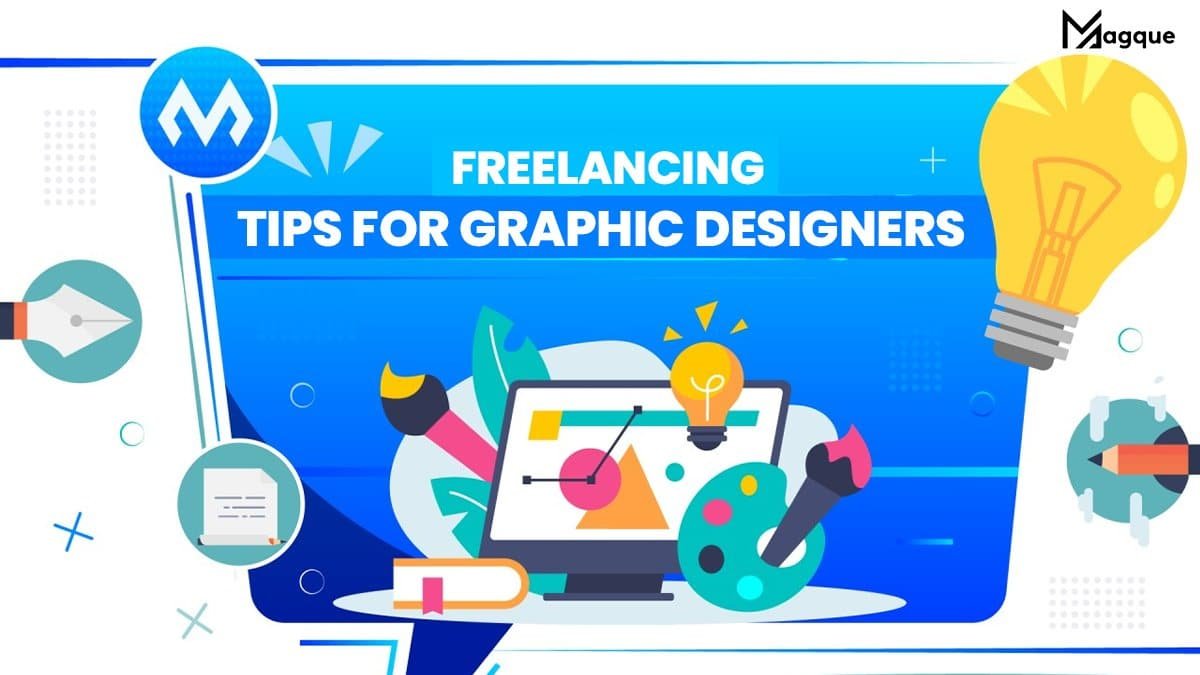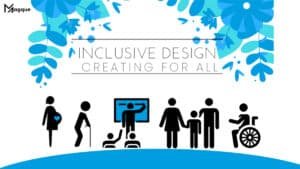Are you a graphic designer looking to break free from the traditional 9-to-5 grind and dive into the world of freelancing? It’s an exciting journey filled with opportunities to showcase your creativity, connect with clients worldwide, and carve out your niche in the digital landscape. But like any adventure, freelancing comes with its own set of challenges and uncertainties. Fear not! In this article, we’ll explore some invaluable tips to help you navigate the freelancing waters and steer your graphic design career toward success.
1. Build a Strong Portfolio:
Your portfolio is your digital storefront, showcasing your skills, style, and versatility to potential clients. Curate a collection of your best work, including various projects highlighting your expertise in different design styles and mediums. Remember, quality trumps quantity. It’s better to showcase a few outstanding pieces than to overwhelm clients with mediocrity.
2. Define Your Niche:
Specializing in a specific niche can set you apart in a competitive market. Whether it’s logo design, web development, or brand identity, identify your strengths and passions and tailor your services accordingly. Clients are more likely to hire a specialist who excels in their particular area of need rather than a jack-of-all-trades.
3. Cultivate Your Online Presence:
In today’s digital age, having a strong online presence is essential for attracting clients and establishing credibility. Create a professional website to showcase your portfolio, blog about industry trends and insights, and leverage social media platforms to engage with potential clients and fellow designers. Remember to maintain consistency across all your online channels to reinforce your brand identity.
4. Network, Network, Network:
Networking is a powerful tool for expanding your client base and tapping into new opportunities. Attend industry events, join online forums and communities, and connect with fellow designers and potential clients. Building meaningful relationships and fostering a strong network can open doors to collaborations, referrals, and repeat business.
5. Set Clear Terms and Rates:
One of the biggest challenges for freelancers is determining their worth and negotiating fair compensation for their services. Before taking on any project, clearly define your terms, including payment terms, project scope, and timelines. Research industry standards and set competitive rates that reflect your skills, experience, and the value you bring to the table. Don’t undersell yourself; know your worth and stand firm.
6. Continuously Learn and Evolve:
The design industry constantly evolves, with new trends, technologies, and tools emerging daily. Stay ahead of the curve by investing in your professional development, attending workshops, and mastering new software and techniques. Embrace lifelong learning as a graphic designer, and never stop honing your craft.
In Conclusion:
Freelancing as a graphic designer offers unparalleled freedom, flexibility, and opportunity for growth. By following these tips and staying committed to your craft, you can overcome the challenges of freelancing and unlock the door to success in the dynamic world of graphic design. So, what are you waiting for? Take the plunge, unleash your creativity, and embark on an exciting journey towards freelance success! And be sure to explore Magque, your go-to source for the latest and most intriguing updates in the realms of informative tips & reviews!
FAQs
Q1. How do I determine my freelance rates as a graphic designer?
Determining your freelance rates can be tricky but essential for ensuring fair compensation for your skills and expertise. Consider factors such as your experience level, project complexity, market demand, and industry standards. Researching freelance rate calculators and networking with fellow designers can provide valuable insights into setting competitive rates that reflect your worth.
Q2. What are some effective ways to find clients as a freelance graphic designer?
Finding clients is a crucial aspect of freelancing success. Utilize online platforms such as freelance marketplaces, social media, and professional networking sites to showcase your portfolio and connect with potential clients. Additionally, attending industry events, contacting local businesses, and leveraging word-of-mouth referrals can help expand your client base.
Q3. How can I protect my work and ensure payment as a freelance graphic designer?
Protecting your work and ensuring timely payment are paramount in freelancing. Always use contracts outlining project details, deliverables, timelines, and payment terms to formalize client agreements. To prevent unauthorized use, watermarking or low-resolution previews should be used when sharing design drafts. For added security, utilize online payment platforms that offer escrow services to facilitate secure transactions.
Q4. What are the benefits of specializing in a niche as a freelance graphic designer?
Specializing in a niche can provide several benefits for freelance graphic designers. By focusing on a specific area, such as branding, web design, or illustration, you can establish yourself as an expert in that field, attract clients seeking specialized services, and command higher rates. Additionally, specializing allows you to hone your skills, build a strong portfolio, and differentiate yourself from competitors in the market.
Q5. How do I manage my time effectively as a freelance graphic designer?
Time management is crucial for freelancers to juggle multiple projects, meet deadlines, and maintain a healthy work-life balance. Create a detailed schedule or calendar to prioritize tasks and allocate time for client work, marketing efforts, and personal development. Consider using productivity tools and techniques such as time-tracking apps and the Pomodoro Technique and setting boundaries to maximize efficiency and productivity.
Read Also This:- Typography in Modern Design



















